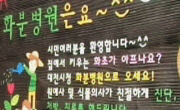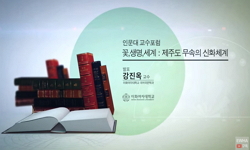본 연구에서는 제주도 물영아리 습지 퇴적물 분석 결과를 토대로 과거 중산간 지대와 오름의 경관 변화 과정을 밝혔다. 인간의 농경이나 목축이 본격적으로 시작되기 전 제주도의 중산간지...
http://chineseinput.net/에서 pinyin(병음)방식으로 중국어를 변환할 수 있습니다.
변환된 중국어를 복사하여 사용하시면 됩니다.
- 中文 을 입력하시려면 zhongwen을 입력하시고 space를누르시면됩니다.
- 北京 을 입력하시려면 beijing을 입력하시고 space를 누르시면 됩니다.

제주 중산간 지역의 과거 경관 변화와 인간 그리고 오름의 환경사적 의미 = The Historical Landscape Change of Jeju Mid-mountain Area and Human Activities, and Implications of Oreums for the Environmental History of Jeju Island
한글로보기https://www.riss.kr/link?id=A106201962
- 저자
- 발행기관
- 학술지명
- 권호사항
-
발행연도
2019
-
작성언어
Korean
-
주제어
제주도 ; 중산간 ; 오름 ; 과거 경관 변화 ; 목축 ; 화분 ; 세립탄편 ; Jeju Island ; mid-mountain area ; oreum ; landscape change ; livestock farming ; pollen ; charcoal
-
등재정보
KCI우수등재
-
자료형태
학술저널
- 발행기관 URL
-
수록면
153-163(11쪽)
-
KCI 피인용횟수
1
- 제공처
- 소장기관
-
0
상세조회 -
0
다운로드
부가정보
국문 초록 (Abstract)
본 연구에서는 제주도 물영아리 습지 퇴적물 분석 결과를 토대로 과거 중산간 지대와 오름의 경관 변화 과정을 밝혔다. 인간의 농경이나 목축이 본격적으로 시작되기 전 제주도의 중산간지역은 지금의 모습과는 달리 대부분 산림지대였다. 당시에는 일부 오름에만 초지가 산재하여 분포하고 있었다. 이후 제주도로 들어온 본토의 농경민들은 척박한 토양 탓에 생산성이 떨어지는 작물농경에서 초지 오름을 이용한 목축으로 관심을 돌리게 된다. 이는 제주도에서 원점령기와 조선시대를 거치면서 집약적인 우마 사육이 이루어진 과정의 시작이었다. 화분과 세립탄편 분석 결과에 따르면, 오름 주변의 중산간지역에 목축을 위한 초지 확장이 본격적으로 이루어진 것은 탐라국이 고려의 군현 체제로 편입된 AD 1100년경부터이다. 13세기 말에 이르면 원나라가 제주도의 초지 위에 탐라목장을 설치하는 과정에서 이미 현재와 유사한 크기 및 형태를 갖춘 광활한 초지가 조성된다. 중산간의 이러한 인위적 경관은 고려 및 조선시대에 걸친 지속적인 목축 활동의 영향으로 지금까지 대부분 원형 그대로 남아있다. 제주도에서 독특한 목축문화가 전개될 수 있었던 배경에는 오름이 있었다. 현재 제주도의 거주민들과 방문자들이 오름을 제주도의 대표경관으로 인식하듯이, 과거 원주민들에게도 오름은 그들의 실생활에 큰 영향을 미쳤던 주요 지형이었다.
다국어 초록 (Multilingual Abstract)
Based on paleolimnological records from Mulyeongari swamp, Jeju Island, we reconstructed the history of landscape change in Jeju mid-mountain area. Before agriculture, the mid-mountain area of Jeju Island was mostly forested land, unlike the present s...
Based on paleolimnological records from Mulyeongari swamp, Jeju Island, we reconstructed the history of landscape change in Jeju mid-mountain area. Before agriculture, the mid-mountain area of Jeju Island was mostly forested land, unlike the present situation. At that time, grasses were scattered only on some oreums (small volcanic cones in Jeju dialect). Because barren soils of Jeju did not allow immigrant farmers from the peninsula to produce enough food for household, they seem to have turned their attention to the livestock farming using oreum grasses. Since then, intensive horse raising continued through the period of Goryeo and Joseon Dynasties in Jeju Island. Our pollen and charcoal records indicate that the size of pastures began to increase rapidly ca. AD 1100 when the Goryeo Dynasty annexed the Tamra Kingdom. By the end of the 13th century, pastures of Tamra Ranch established by the Yuan Dynasty, were extensively expanded to have a similar size to the present grassland. These artificial landscapes of the mid-mountain area have remained largely unchanged until now due to continuous livestock activities during the Goryeo and Joseon Dynasties. Thus, it is likely that the presence of grassy oreums led to a unique herding culture in Jeju Island. As the current residents and visitors of Jeju Island perceive the oreum as the representative landscape of Jeju Island, to the past residents the oreum was a major landmark that had a great influence on their real life.
목차 (Table of Contents)
- 요약
- Abstract
- 1. 서론
- 2. 연구지역 및 연구방법
- 3. 연구결과 및 논의
- 요약
- Abstract
- 1. 서론
- 2. 연구지역 및 연구방법
- 3. 연구결과 및 논의
- 4. 결론
- 참고문헌
참고문헌 (Reference)
1 이임영, "해송림 종합관리계획" 제주특별자치도 2013
2 차종환, "한라산 식물의 수직 분포" 12 : 19-29, 1969
3 오구균, "한라산 돈내코계곡의 해발고별 식물군집분포" 한국환경생태학회 21 (21): 141-148, 2007
4 국토지리정보원, "한국지리지-제주특별자치도"
5 김상호, "한국농경문화의 생태학적 연구" 4 : 81-122, 1979
6 강만익, "조선시대 제주도 잣성(牆垣) 연구" 탐라문화연구원 (35) : 205-246, 2009
7 김동전, "제주지역 목장사와 목축문화" 경인문화사 2015
8 김남영, "제주마의 기원 및 모색 특성에 대한 고찰" 2 : 28-31, 2018
9 김민구, "제주도 송국리문화의 석기조성과 생업경제 -호남지역과의 비교-" 호남고고학회 36 : 63-95, 2010
10 산림청, "임상도_제주"
1 이임영, "해송림 종합관리계획" 제주특별자치도 2013
2 차종환, "한라산 식물의 수직 분포" 12 : 19-29, 1969
3 오구균, "한라산 돈내코계곡의 해발고별 식물군집분포" 한국환경생태학회 21 (21): 141-148, 2007
4 국토지리정보원, "한국지리지-제주특별자치도"
5 김상호, "한국농경문화의 생태학적 연구" 4 : 81-122, 1979
6 강만익, "조선시대 제주도 잣성(牆垣) 연구" 탐라문화연구원 (35) : 205-246, 2009
7 김동전, "제주지역 목장사와 목축문화" 경인문화사 2015
8 김남영, "제주마의 기원 및 모색 특성에 대한 고찰" 2 : 28-31, 2018
9 김민구, "제주도 송국리문화의 석기조성과 생업경제 -호남지역과의 비교-" 호남고고학회 36 : 63-95, 2010
10 산림청, "임상도_제주"
11 제주특별자치도, "방재 희망백서 - 8개월간 소나무 재선충병 총력방제 현장기록" 디자인 열림 2014
12 기상청, "국내기후자료"
13 전영준, "고려의 탐라 수탈과 良守의 亂" 역사교과서연구소 (25) : 111-140, 2017
14 김일우, "고려시대 탐라 주민들의 생업활동과 그 유형" 106 : 1-41, 2005
15 Lim, J., "Vegetation and climate variability in East Asia driven by low-latitude oceanic forcing during the middle to late Holocene" 30 : 2487-2497, 2011
16 Whitlock, C., "Tracking environmental change using lake sediments. Volume 3: terrestrial, algal, and siliceous indicators" Kluwer Academic Publishers 75-97, 2001
17 Zhou, X., "Time-transgressive onset of the Holocene Optimum in the East Asian monsoon region" 456 : 39-46, 2016
18 Park, J., "The link between ENSO-like forcing and hydroclimate variability of coastal East Asia during the last millennium" 7 : 8166-, 2017
19 Park, J., "Solar and tropical ocean forcing of lateHolocene climate change in coastal East Asia" 469 : 74-83, 2017
20 Kim, M., "Rice and Social Differentiation on a Volcanic Island:An Archaeobotanical Investigation of Yerae-dong, Korea" 1-17, 2018
21 Clark, R.L., "Point count estimation of charcoal in pollen preparations and thin sections of sediments" 25 : 523-535, 1982
22 Park, J., "Orbital‐and millennial‐scale climate and vegetation changes between 32.5 and 6.9 k cal aBP from Hanon Maar paleolake on Jeju Island, South Korea" 29 : 570-580, 2014
23 Park, J., "Late-Holocene vegetation and climate change in Jeju Island, Korea and its implications for ENSO influences" 153 : 40-50, 2016
24 Park, J., "Highresolution multi-proxy evidence for millennial-and centennial-scale climate oscillations during the last deglaciation in Jeju Island, South Korea" 105 : 112-125, 2014
25 Schwendemann, A. B., "Aerodynamics of saccate pollen and its implications for wind pollination" 94 : 1371-1381, 2007
26 박찬식, "17·8세기 제주도 목자의 실태, 제주문화연구: 현지김영돈박사화갑기념" 제주문화 461-478, 1993
동일학술지(권/호) 다른 논문
-
서울시 아파트 전월세전환율에 대한 지역변수 영향력 분석
- 대한지리학회
- 김혜미(Hyemi Kim)
- 2019
- KCI우수등재
-
- 대한지리학회
- 신진숙(Jinsook Shin)
- 2019
- KCI우수등재
-
한반도 접경지역에서 나타나는 ‘안보-경제 연계’와 영토화와 탈영토화의 지정-지경학
- 대한지리학회
- 박배균(Bae-Gyoon Park)
- 2019
- KCI우수등재
-
- 대한지리학회
- 송원섭(Wonseob Song)
- 2019
- KCI우수등재
분석정보
인용정보 인용지수 설명보기
학술지 이력
| 연월일 | 이력구분 | 이력상세 | 등재구분 |
|---|---|---|---|
| 2022 | 평가예정 | 계속평가 신청대상 (등재유지) | |
| 2017-01-01 | 평가 | 우수등재학술지 선정 (계속평가) | |
| 2014-01-03 | 학술지명변경 | 외국어명 : Journal of the Korean Geographic Society -> Journal of the Korean Geographical Society |  |
| 2013-01-01 | 평가 | 등재학술지 유지 (등재유지) |  |
| 2010-01-01 | 평가 | 등재학술지 유지 (등재유지) |  |
| 2008-01-01 | 평가 | 등재학술지 유지 (등재유지) |  |
| 2006-01-01 | 평가 | 등재학술지 유지 (등재유지) |  |
| 2003-01-01 | 평가 | 등재학술지 선정 (등재후보2차) |  |
| 2000-07-01 | 평가 | 등재후보학술지 선정 (신규평가) |  |
학술지 인용정보
| 기준연도 | WOS-KCI 통합IF(2년) | KCIF(2년) | KCIF(3년) |
|---|---|---|---|
| 2016 | 1.14 | 1.14 | 1.28 |
| KCIF(4년) | KCIF(5년) | 중심성지수(3년) | 즉시성지수 |
| 1.17 | 1.13 | 1.701 | 0.52 |




 KCI
KCI DBpia
DBpia







